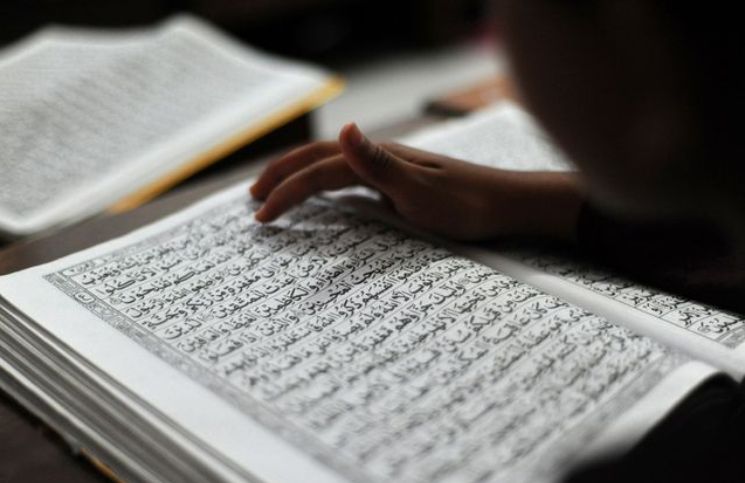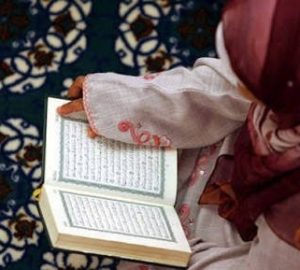The revelation that was first revealed to the Prophet Muhammad sallallaahu alaihi wa sallam was iqra‘ which means “read”. From the word iqra ‘alone we can know that Islam is a religion that emphasizes the importance of literacy to foster critical power and rational-objective thinking. This fact can we look at the explanation of Quraish Shihab about the meaning of iqra’ in his book, Membumikan Alquran (Earthing the Qur’an).
According to him, said iqra’ was taken from the word qara’a which at first meant “to gather”. The scope of the meaning of gathering is very broad, among others, reviewing, reading, deepening, researching, knowing the characteristics of things, etc., all of which can be returned to the nature of gathering.
Before discussing Islamic relations and literacy, it is important to know what literacy really is? In the Indonesian Dictionary, literacy is a term used to refer to an ability and skill in processing and understanding information when reading and writing. Looking at Quraish Shihab’s explanation of the meaning of iqra’ in the previous paragraph, in truth, recognizing and understanding the ideas conveyed visually is also literacy, including reading the verses of kauniyyah.
This religion (Islam) is actually built on the basis of literacy. The first five verses in Surah al-alaq as the first revealed revelation confirms that. Other evidence is the name of the Muslim holy book, the Qur’an which means “reading”. In fact, the most important miracle (afdlalul mu’jizat) is a miracle of literacy: the Koran.
In the first three verses of Surat al-Bayyinah, Allah subhanahu wa ta’ala has asserted that the unbelievers of both the book of experts and polytheists will not leave their religion until a messenger (apostle) who reads the pages of the scriptures as evidence bright. It becomes a key word that “forces” the objective mind to accept the truth of the Qur’an as the main source of this religion.
This was seen when the Quraish non-belivers demanded evidence of the apostolate of the Prophet Muhammad sallallaahu alaihi wa sallam as previously indicated by the prophets, he actually recited a verse about mosquitoes (al-Baqarah [2]: 26), a creature deemed small and trivial.
In fact, the small and weak mosquito has troubled many academics and medical practitioners. Studies have been conducted. Many factories have been established. All that is done to overcome this one creature. On the one hand, it has a positive impact on the opening of jobs. But on the other hand, many people suffer and die from it.
Literature for the Arabs seems to be a part of life that is difficult to separate. Poets have noble positions on their side. The idols they want are poets and the words they follow are literary words. So, when the Prophet Muhammad sallallaahu alaihi wa sallam delivered the revelation of the Koran, they accused him of his composition.
To deny the accusation, the Koran challenged them to compile a letter that was able to match even the shortest letter in the Koran. See for example al-Baqarah [2]: 23–24, Yunus [10]: 37–38, al-Isra ‘[17]: 88, and ath-Thur [52]: 33–34. Apparently, both the Quraysh non-belivers who lived in the era of the Prophet and the contemporary Orientalists who blessed the Qur’an as a revelation were unable to create works that were able to emulate the Qur’an. What happened was the recognition of the authenticity of the Koran. In fact, Dr. Maurice Bucaille said, “The Qur’an is a holy book that has no errors as big as grain.”
The physical miracle (hissiy) is only able to convince people who witness with their own eyes. Meanwhile, people who do not see it directly are not easy to believe. Therefore, this kind of miracle is temporary. This is different from the Qur’an which displays objective truth for human reason.
Because the truth of the Koran is witnessed by reason (ain al-bashirah) and stimulates us to think sane and objective, then the miracle is eternal. Therefore, despite strongly opposing the da’wah of the Prophet Muhammad sallallaahu alaihi wa sallam, the non-belivers of Quraysh such as Abu Jahal, Abu Sufyan and Abu Lahab often heard the recitations of the Koran of the Prophet’s companions.
In fact, their minds admire and are unable to deny the simple logic of the Qur’an. Only because of their pride and vanity, they reject the teachings of Islam.
According to Gus Baha’uddin Nur Salim – a phenomenal young cleric from Narukan, Rembang -, with the simple and objective logic of the Koran, Prophet Muhammad sallallaahu alaihi wa sallam has provided the widest means of faith. Therefore, despite being abandoned by the Prophet, this people still believe in authentic teachings. Thus, it becomes illogical to preach this religion with violent narratives.
Artikel ini juga tersedia dalam bahasa:
 Indonesian
Indonesian





